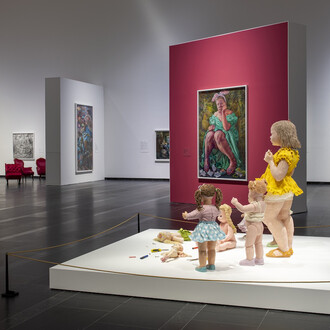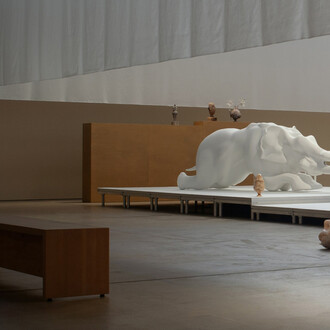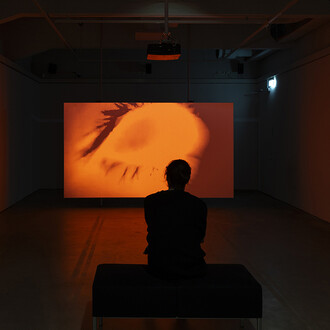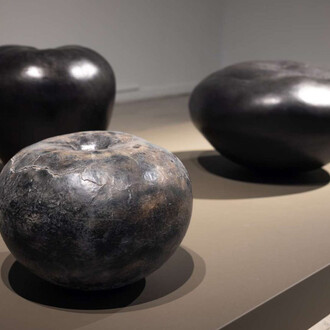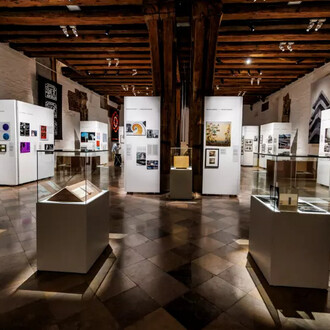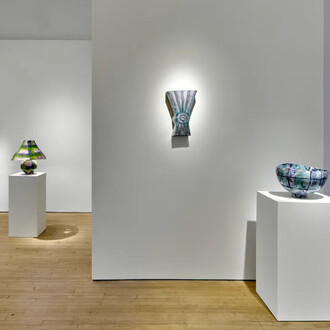The act of mending is a theme within the exhibition Fix: care and repair in Helsinki, Finland. The exhibition unites poised artworks that articulate truth on a changing social outlook about repair, recognized as a meditative and joyous act. It is a reminder to stay optimistic by commemorating the blunders and errors in life.
This exhibition presents a healing journey, which sees beauty in the incomplete and finds value in simplicity. Repair is a traditional practice in cultures globally, symbolic of their communities and beliefs.
The concept of repair is applauded globally, it has become necessary for preserving a world that prioritizes sustainability to combat the devastating effects of a climate emergency.
The exhibition includes a variety of exceptional works; a restored Alvar Aalto's Chair 65, 1935; a plaster copy of the decorative volute of the main door from the Museum of Finnish Architecture building, 1980; a cleaning cart used to clean the facilities of the Museum of Finnish Architecture, which was designed by Ilkka Pilto and Petri Rekola in 1994 and an inventory installation by Liisa Ryynänen commissioned by the museum in 2024.
The array of works within this exhibition confronts expectations of exhibiting objects; an idea that only clean, perky, and novel objects have a right of place. This work intends to highlight labor and process as the epitome of form.
Textile artist Takao Momiyama is included in this exhibition with the work Inheritance. They use the Japanese Sashiko technique, which is a traditional sewing and mending technique where a selection of fabrics are composed together in layers with needle and thread. The fabrics are quilted with stitches that format geometric patterns to shell the total surface, and the edges are often left unturned and raw.
This is a technique that conveys an understanding of the significance of care. The action of care is one devotee of time; therefore, sewing slow stitches is a caring act. Repairing is the ultimate opposite of throwaway culture.
The intention of this exhibition is also reflected in prior shows across the world, which present a strengthening narrative on healing. The Somerset House presented Eternally yours, a showcase of works that offered diverse specimens of creative reuse, from historical samples of Kintsugi and Boro, which embrace healing and recovery, to artworks from contemporary artists inquisitive of mending in their practice.
The exhibition creates a space to stage textiles, ceramics, and furniture to reflect upon hope. A sentiment that can be discovered in the memoirs and truths that everyday objects protrude. Commemorating the history and emotional importance of the items that exist around us, rather than abandoning them.
It showcases diverse examples of creative reuse, from historical samples of the Japanese art of Kintsugi and Boro, which embrace upcycling and repurposing, to works from contemporary artists who put repair at the heart of their practice. Eternally Yours explores the optimistic and therapeutic stories that repair uncovers.
In a bid to familiarise the process of repair, the exhibition staged workshops where visitors were immersed in the skills of designers and makers first-hand at the Beasley Brothers’s Repair Shop. They renovate discarded objects and cleverly transform them. The installation is modeled on traditional East End repair shops that could mend everything.
Bringing together everything from textiles and ceramics to furniture, Eternally yours reflects upon the hope and healing that can be found in the memories and stories that everyday objects hold in our lives. Reveling in the history and emotional value of the items we hold on to rather than discard. The exhibition encompasses works from a wide-ranging roster of creatives: textile artists Celia Pym, Angela Maddock, and Georgina Maxim, designers Studio Propolis, artist and researcher Ellen Sampson, and maker Peter Marigold.
Eternally yours is supplemented by a spectacle of works from contributing artists exploring the concept of repair led by lifestyle brand TOAST which is a brand that continually seeks out ways to extend the life of garments. They inspire their community to replicate the philosophy with personal, beloved pieces. The TOAST Renewal Workshop hosted weekly artist-led workshops and restoring consultations. The brand hopes to motivate people to implement craft techniques and reassess their relationship with clothing.
The works of participating artists comprise; sculptural furniture by Tom Collison, reconstructed garments by Isabel Fletcher and Amy Goacher, creatively repaired ceramics by Bridget Harvey, and kantha-stitched textiles by Ekta Kaul. The display is curated to gift us the manifestation of artistic repair.






